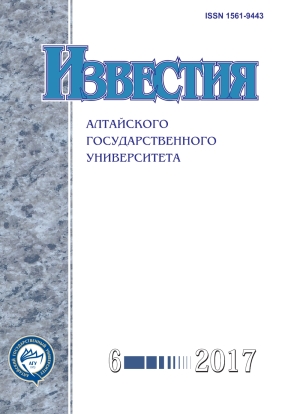Moral Legal Traits of Marriage among Peasants in Pre Revolutionary Russia
Abstract
The article considers the essence of a peasants’ marriage as complete communication (including such elements as natural, moral, economic, legal and religious) between a man and a woman, where the unifying principle is not kinship, but common labor.The author discloses such conditions of marriage as the age of persons entering into marriage and agreement conducted through nonresistance. Legal consequences of non-observance of the indicated conditions are considered. A characteristic is given of the refusal to marry as a legal fact, as well as the legal consequences of such a refusal. Moral and legal peculiarities of the decision of marriage are considered. Special attention is given to the abduction of the bride, which was preserved in separate localities as a signs of former orders. The importance of the approval of marriage from parents, the church and society is determined.The personal and property rights and the duties of spouses are considered. The cases of these rights and duties for the most part are taken up by the township courts, while the state courts usually avoid their consideration. The presentation of these issues is accompanied by examples and references to specific decisions of township courts. The social effectiveness of such decisions is justified.
DOI 10.14258/izvasu(2017)6-03
Downloads
Metrics
References
Адаменко О.В., Скляр Л.Н. Культура отношений в крестьянской семье Ставропольской губернии (конец XIX — начало XX в.) // Вестник Калмыцкого института гуманитарных исследований РАН. — 2014. — № 2.
Ефименко А.Я. Исследования народной жизни: обычное право. — М., 2011.
Пахман С.В. Обычное гражданское право в России. — М., 2003.
Загоровский А.И. Курс семейного права. — М., 2003.
Свод Законов Российской Империи : в 16 т. Т. X, ч. 1 [Электронный ресурс]. — URL: http://civil.consultant. ru/code/.
Смирнов А. Очерки семейных отношений по обычному праву русского народа. — М., 1877.
Миронов Б.Н. Социальная история России периода империи (XVin — начало XX в.) : в 2 т. — СПб., 2003. Т. 1.
Леонтьев А.А. Волостной суд и юридические обычаи крестьян. — СПб., 1895.
Труды комиссии по преобразованию Волостных Судов. Владимирская и Московская губернии. — СПб., 1873. Т. 2.
Труды комиссии по преобразованию Волостных Судов. Киевская и Екатеринославская губернии. — СПб., 1874. Т. 5.
Copyright (c) 2017 К.А. Синкин

This work is licensed under a Creative Commons Attribution 4.0 International License.
Izvestiya of Altai State University is a golden publisher, as we allow self-archiving, but most importantly we are fully transparent about your rights.
Authors may present and discuss their findings ahead of publication: at biological or scientific conferences, on preprint servers, in public databases, and in blogs, wikis, tweets, and other informal communication channels.
Izvestiya of Altai State University allows authors to deposit manuscripts (currently under review or those for intended submission to Izvestiya of Altai State University) in non-commercial, pre-print servers such as ArXiv.
Authors who publish with this journal agree to the following terms:
- Authors retain copyright and grant the journal right of first publication with the work simultaneously licensed under a Creative Commons Attribution License (CC BY 4.0) that allows others to share the work with an acknowledgement of the work's authorship and initial publication in this journal.
- Authors are able to enter into separate, additional contractual arrangements for the non-exclusive distribution of the journal's published version of the work (e.g., post it to an institutional repository or publish it in a book), with an acknowledgement of its initial publication in this journal.
- Authors are permitted and encouraged to post their work online (e.g., in institutional repositories or on their website) prior to and during the submission process, as it can lead to productive exchanges, as well as earlier and greater citation of published work (See The Effect of Open Access).








